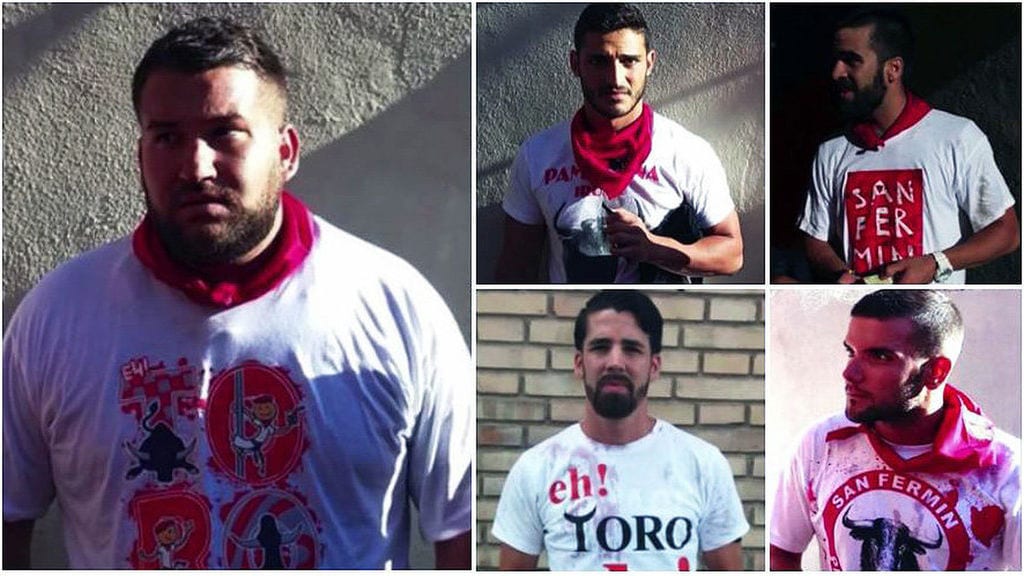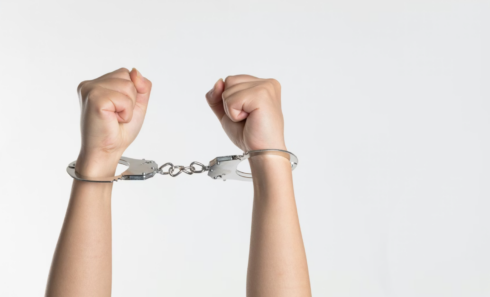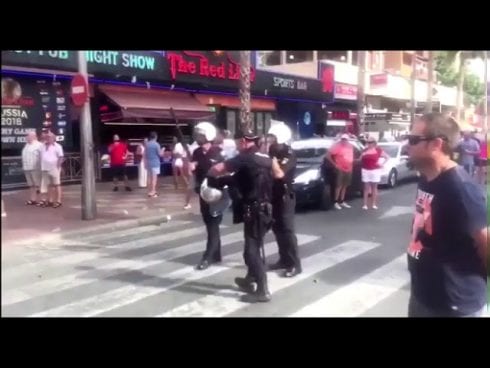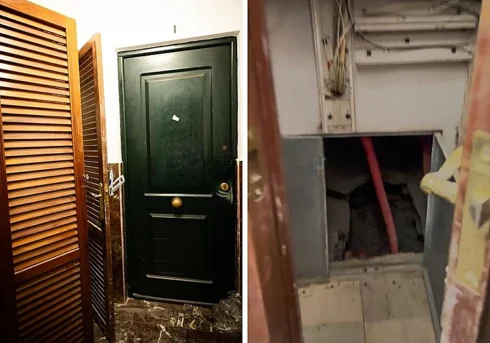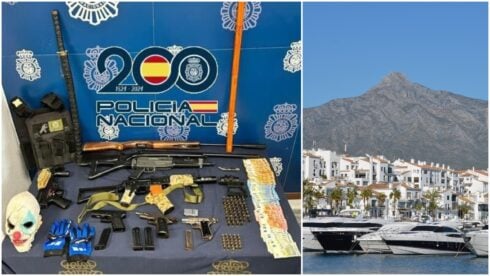
IT was the trial that became a flashpoint for Spain’s gender-violence crisis.
Five men, including a police officer, stood accused of raping an 18-year-old girl at the Pamplona bull running festival.
But despite what many saw as solid evidence, the men, all from Sevilla, were convicted on a lesser charge of sexual abuse.
The verdict in the case dubbed ‘la Manada’ (or wolf pack in English) sent shockwaves through feminist groups in a country where gender violence has increased at alarming rates – with last year being the most violent on record.
 A total of 158,217 women were subjected to violence by men in 2017, an alarming 17.7% rise on the year before, albeit much of this due to an increase of reporting of such crimes.
A total of 158,217 women were subjected to violence by men in 2017, an alarming 17.7% rise on the year before, albeit much of this due to an increase of reporting of such crimes.
More worryingly, the number of minors brought before the courts for violence against women also increased from 179, in 2016, to 266, in 2017.
Just this week, a boy was among a group of five males arrested for assaulting an underage girl in Gran Canaria.
Dubbed ‘the new wolf pack’ – the name they gave themselves in a Whatsapp group – they were released on bail last week, to much uproar.
 What shocked most is how much the original wolf pack case seemed to inspire the latest assault, with at least one of the alleged abusers recording the attack on their phone.
What shocked most is how much the original wolf pack case seemed to inspire the latest assault, with at least one of the alleged abusers recording the attack on their phone.
The original wolf pack were also released on bail last month in a shock decision by Navarra judges.
They defended the move by saying the risk of them trying to flee would be limited by several conditions, including reporting to police three times a week and relinquishing their passports.
But Guerrero, the police officer among the accused, was sent back to prison last week after attempting to get a new passport.

It came after he and his friends were found guilty of ‘sexual abuse’ of a teenage girl on April 26, despite the victim insisting the men took turns to rape her in a secluded building entrance.
The group, Jose Prenda, Alfonso Cabezuelo, Antonio Guerrero, Jesus Escudero and Angel Boza were sentenced to nine years’ imprisonment, five years’ probation and ordered to pay €10,000 each to the victim.
Guerrero, a Guardia Civil officer, was also given a €900 fine for stealing the woman’s phone after the brutal attack at the Pamplona festival last year.
After the verdict was known, protesters in Pamplona shouted: “This justice is bullshit!”,
“It’s not abuse, it’s rape!” and “If they touch one of us, they touch all of us!”.
Her lawyer and the Navarra government has now appealed, while demonstrations took place across the country, forcing a fierce debate about gender inequality in a country where 17 women were murdered in the first two months of last year alone, and where women are still paid 16% less than men.
The trial itself was heavily criticised after the judge allowed the defence to introduce photos taken by the victim in the days after the attack.
 The snaps – taken by a private detective – showed her laughing and smiling with friends, suggesting she shouldn’t have been in a ‘happy mood’ after such an attack.
The snaps – taken by a private detective – showed her laughing and smiling with friends, suggesting she shouldn’t have been in a ‘happy mood’ after such an attack.
Women’s groups blasted the trial for being a cross-examination of the victim and kickstarted Spain’s very own Me Too movement.
Thousands of women shared their heartbreaking personal experiences by using the hashtag #Cuéntalo (Tell it) showing solidarity with the young victim.
The victim, 18 at the time, had willingly kissed one of the defendants and was walking towards his car when the other four men joined them and took her to the secluded spot.
“When we arrived to the building entrance I became so scared,” she told the court. “They took off my bra and started unbuttoning my top, then they grabbed my jaw.”
She said she became frozen with fear and didn’t know what else to do but submit.
“I just closed my eyes, I was in a state of shock.”
She said the men only talked to each other while they took turns raping her.
“I could not even look at their faces, I only remember seeing their tattoos.
“I remember them laughing and one of them saying, ‘hey man, it’s my turn!’”
She has suffered nightmares and insomnia and had periods of deep depression ever since and this week – for the first time – wrote to a Spanish TV network pouring out her heart.
“Tell a friend, a relative, the police, in a tweet, do it as you wish, but tell it,” she said.
“Do not stay silent, because if you do, you are letting them win.
“Nobody has to go through this. No one has to regret drinking, talking to people at a party, going home alone or wearing a miniskirt.”
It is a heart-wrenching appeal to a society that needs to listen.
What the trial, verdict and heated debate has made painfully clear, is that the fight for women’s rights in Spain is far from over.
A spokeswoman for the Navarra regional government said it would also appeal after not agreeing with the verdict.
Click here to read more Spain News from The Olive Press.

